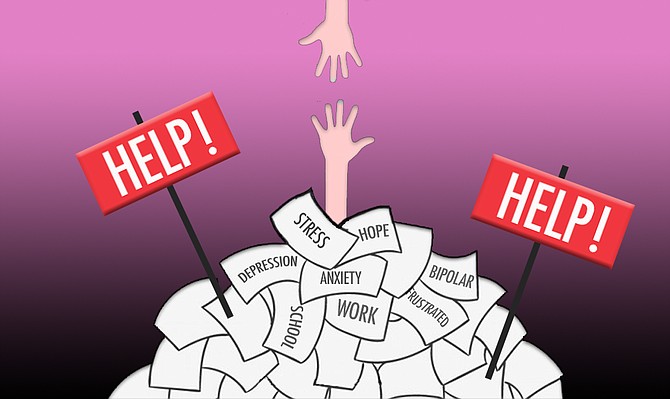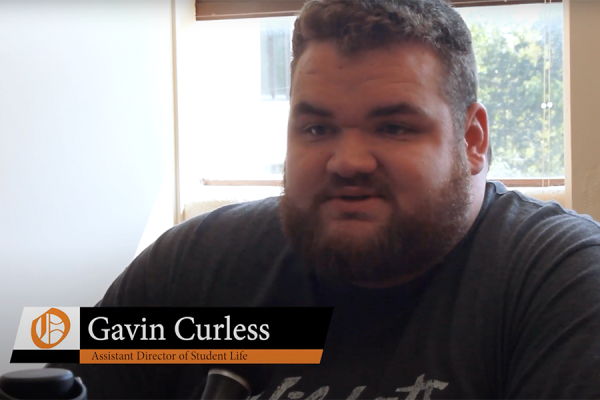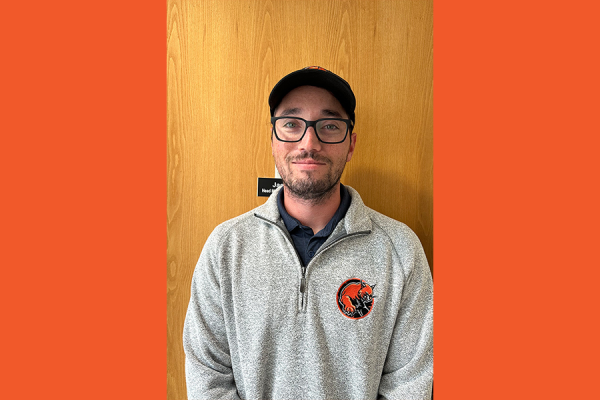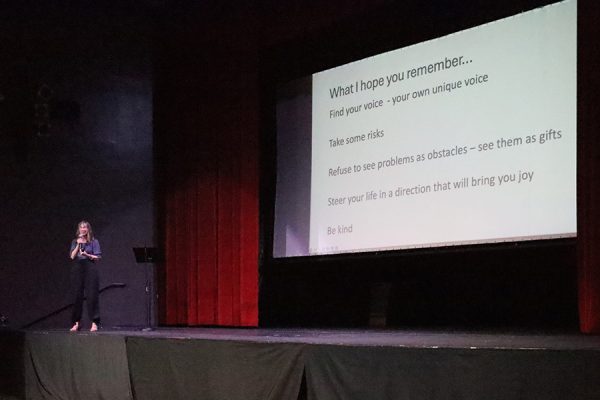Mental health: a silent illness
Image by Maria Echeverry.
The student who missed class three times last week may not be lazy, immature or irresponsible. That student may be a prisoner inside his or her own mind, trapped in the drowning darkness that leaves a thin film of sadness on everything. That student is too depressed to get out of bed.
At Baker University we are blessed to have a small, intimate campus that includes a sense of accountability, an invisible system of checks and balances. This causes our professors to notice when we haven’t turned any homework in for two weeks, our sorority sisters to bring us soup when we can’t get ourselves to come downstairs for dinner and our coaches to pull us aside when they recognize our sudden weight loss.
However, this notion of accountability isn’t enough to keep some students from suffering alone, fighting their inner demons without the support of others. These people are scared, confused and exhausted. These people are sick with mental illness, and we need to talk about it.
Our campus recently observed a week dedicated to mental health awareness, but let us not limit one week to recognizing mental illness. Let this be the beginning of the normalization of such diseases.
The only way mental health is normalized and destigmatized is by speaking out about it, recognizing its ever-present influence on so many students across every college campus in America. According to the National Alliance on Mental Illness, one in four of your classmates battle with a mental illness, a diagnosable disorder that distorts their mind and body. Just because these diseases are not always observable doesn’t mean they don’t exist. These diseases are all too real.
The majority of these people receive no professional health care; in fact, just one in three of them do. These people are sick. A chronically depressed person without medication and counseling is similar to a cancer patient without radiation. Instead, they are struggling alone, their minds feeding them lies, tearing them to pieces.
According to Tim Hodges, director of the campus health and counseling center, only 15 percent of Baker students seek help, compared to an average of 8 percent at universities nationwide. Although Baker’s numbers are encouraging, this still leaves many students who are in need without professional expertise and guidance.
The lack of students coming forward to seek therapy can be directly attributed to the stigma associated with mental illness. Our society has an underlying ideal of “fixing it ourselves,” of never revealing our weaknesses, and of dealing with our demons alone. However, it is too dangerous to stay silent.
If you do suffer from a mental illness, it is not your fault. Do not be ashamed. In fact, be proud. You are battling a disease whose main goal is to make you think you are not enough, and yet you are enough. Mental illness should not conquer your personal happiness, and you can defeat it. So please, let’s talk about it.







